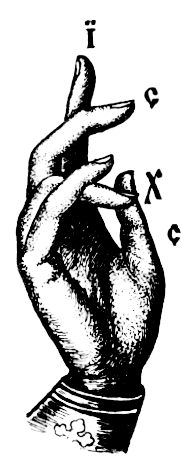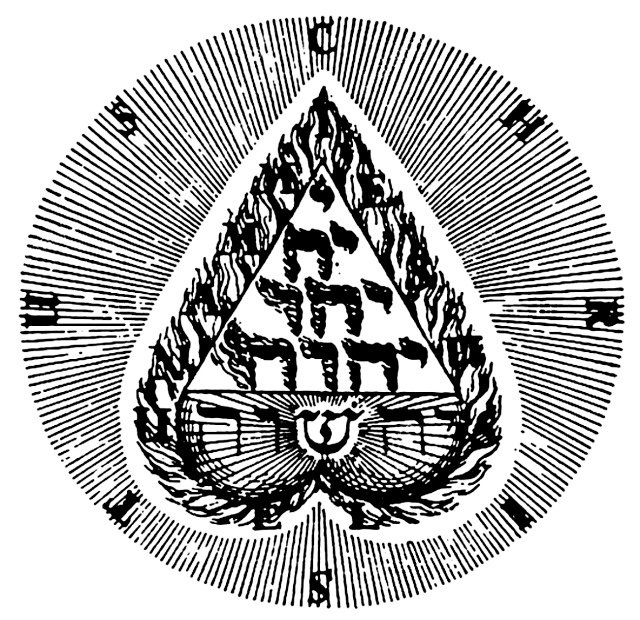Genesis 4:26 - Men “Began to Call Upon”???
- טימותי לורנס
- Jul 3, 2023
- 4 min read
Updated: Sep 16, 2024
I simply can’t explain just how much is lost in any translation from the Original Hebrew Scriptures. I’m sure that Greek is the same, but I really can’t even begin to explain that, because Greek is completely foreign and abstract to me altogether; but I do know some basic Hebrew. At least enough to get me into trouble and then about halfway out of it…hopefully.
I’ve often paused on this verse in Genesis Chapter Four and thought, “wait a minute, why are people just now beginning to call upon The Name of The LORD?” Didn’t Adam and Eve walk with HaShem in The Garden of Eden? Wasn’t Abel and Cain making offerings? This has always sort of puzzled me.
Here is the verse that I’m referring to:
“To Seth also a son was born, and he called his name Enosh. At that time people began to call upon the name of the LORD.” - Genesis 4:26
ולשת גם־הוא ילד־בן ויקרא את־שמו אנוש אז הוחל לקרא בשם יהוה׃ פ
First off, let’s break down what the name “Enosh” actually means. This is from an earlier post about the six words used for “man” - found here:
Six Words - Four in The Hebrew OT and Two in The Greek NT - Six Is The Number of Man.
Enosh - ( אנוש ) - Man / Weak and Mortal / Subject to Suffering to Death
“They are not in trouble as others are;
they are not stricken like the rest of mankind.” - Psalm 73-5
בעמל אנוש אינמו ועם־אדם לא ינגעו׃
“As for man, his days are like grass;
he flourishes like a flower of the field;” - Psalm 103:15
אנוש כחציר ימיו כציץ השדה כן יציץ׃
Mortal / Man - ( אנוש ) - Numeric Value - 357
Captive - ( נשבה ) - Numeric Value - 357
Now that we understand that the name Enosh ( אנוש ) literally means Mortal Man that is subject to death and suffering, then we can begin to see the rest of this verse in a whole new light. This tells us right off that Enosh most likely wasn’t a good person.
There are a few Hebrew words that I want to highlight to show that this verse has not been translated well, not at all.
“…At that time people began to call upon the name of the LORD.”
אז הוחל לקרא בשם יהוה
אז
Az - At that time - Adverb
הוחל
Huchal
This looks to me as if it’s a Compound Word, beginning with Hu ( הו ) - which means “He”
The Root Word used here is Strong’s 2490: Chahal ( חָלַל ) - To bore, to wound, to dissolve, to profane, to break, to begin, to play - This is The VERB used here, it doesn’t any form or fashion mean “began” - as it is commonly translated
לקרא
Likro - To Speak - This is The Infinitive / Preposition (it is NOT the verb in this section, as it reads in English)
בשם
B’Shem - In (The) Name
יהוה
Yud Hei Vav Hei - LORD
I believe that a more accurate translation of this verse should read:
“To Seth also a son was born, and he called his name Enosh, who at that time profaned the name of the LORD.” - Genesis 4:26
I’m not alone on this one, I done some research and this viewpoint is also shared by Rashi, and The Targum speaks of this as well.
Genesis.4.26 - Rashi - אז הוחל THEN IT WAS BEGUN [TO CALL etc.] — The word הוחל must be connected in meaning with חולין “profane matters “) viz, calling the names of men and the names of idols after the name of the Holy One, blessed be He — making them the objects of idolatrous worship and calling them Deities (Genesis Rabbah 23:7).
Genesis.4.26 - Targum Jonathan - “And to Sheth also was born a son, and he called his name Enosh. That was the generation in whose days they began to err, and to make themselves idols, and surnamed their idols by the name of the Word of the Lord.”
Of all our modern English translations, one of my least favorites is The Amplified Bible. Their interpretation of this verse makes it sound like this was some type of revival or something - which I've found a lot of people teach...
“To Seth, also, a son was born, whom he named Enosh (mortal man, mankind). At that [same] time men began to call on the name of the LORD [in worship through prayer, praise, and thanksgiving].” - Genesis 4:26 Amplified Bible
This also gives us a bit more clarity as why G*d raised up The First Prophet, Enoch, The Seventh from Adam. As it is written:
“It was also about these that Enoch, the seventh from Adam, prophesied, saying, “Behold, the Lord comes with ten thousands of his holy ones,
to execute judgment on all and to convict all the ungodly of all their deeds of ungodliness that they have committed in such an ungodly way, and of all the harsh things that ungodly sinners have spoken against him.” - Jude 1:14-15
…but that’s a whole other story for a different time.

Here’s another cool little tidbit to think about that even further backs this idea up, as we see these repeating patterns in The Word.
Enosh was The Third from Adam
AND
Johnathon, The Third from Moses, was the first Idolatrous Priest, spoken of in The Book Judges…I talk all about that in a earlier post as well - found here:
Don’t take my word for anything, I’m nothing whatsoever. Dig deep into it all and see what HaShem shows you!

חסד ושלום עליכם והרבה אהבה וברכות
May Grace and Peace Be Upon You and Much Love and Blessings!

















I think so, Alex. I’ve always wondered why everything seems to go so wrong after “people began to call upon The Name of The LORD.” I believe that Enosh was the first generation to profane The Name of The LORD, didn’t take long…Rashi‘s commentary & The Aramaic Targum translation are good indicators as well, but the overall Jewish interpretation doesn’t agree on this (imagine that…lol).
Just one correction, you said "I’m nothing whatsoever" which is not true! You are a son of God, made in His image, a member of the body of Christ with great value (Luke 12:7)! : )
Very interesting Timotheus! And I think you may be on to it...your interpretation sure fits with what happens later (Gen 6:5-7) where God saw the wickedness of man in all the earth was great, and they were continually evil, and it repented the Lord that He had made him. Those verses in Genesis are not the result of men "calling upon the name of the Lord."